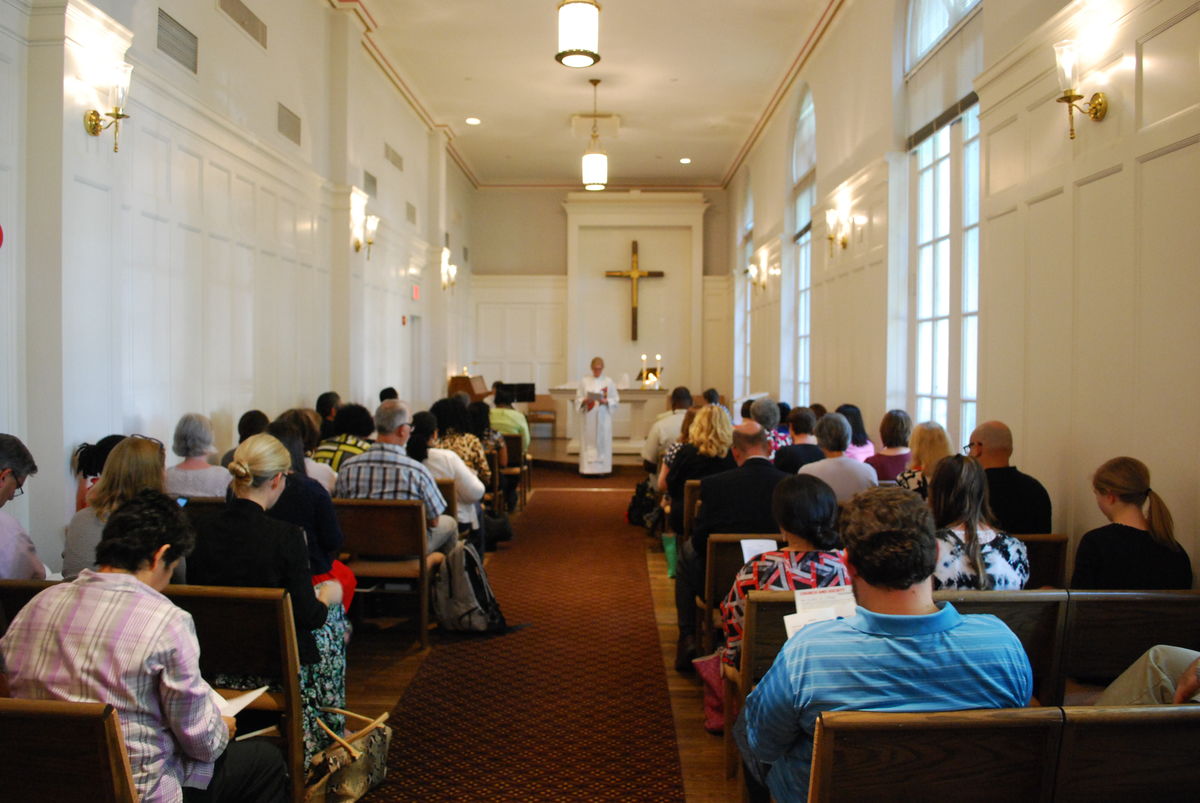Center down: Prayer in the struggle for justice
Dr. Jessie Smith, who coordinates the weekly chapel service at the United Methodist Building, reflects on the need for prayer in her — and our — work for peace and justice.

“How good it is to center down!
To sit quietly and see one’s self pass by!”
— “How Good To Center Down,” Howard Thurman
Spiritual nurture: essential and pragmatic
Walking the three or four blocks to Capitol Hill from Union Station week after week takes its toll.
For the last five years, I have seen women and men in business attire lining up outside the door to Dirksen, one of the Senate buildings. Many stand nervously clutching their briefcases and cell phones, hands twitching in their pockets, waiting to enter the halls of power.
Sometimes, I find myself feeling pressed in by such frantic energy by the time I get to the United Methodist Building offices.
Stress and struggle for justice are also very real among my colleagues. Some are working on responding to the latest mass shooting. Others have just gotten off a conference call with ministry leaders on poverty. While still others are pounding away on computer keys trying to get the word out for United Methodists to support climate action around the world.
I needed to center down
After a few years in this environment, my soul was in pain from all the injustices that reverberate throughout the world. I started to look at the world with suspicion, jealousy, anger and pain. I needed to “center down,” as Howard Thurman calls it.
Blessedly, each week, I coordinate the worship services on Wednesdays offered in the United Methodist Building’s Simpson Memorial Chapel. I started praying with colleagues and visitors to the United Methodist Building. Slowly, and imperfectly, this weekly time has helped me not allow the urgency of the now overshadow the depth of hope that we as Christians proclaim.
Prayer connects me to reality
Over time, through prayer, I saw the humanity of this community on Capitol Hill. I do not just see my colleagues or members of the larger Washington Interreligious Staff Committee — a committee of nonprofit, faith-based organizations — as persons who work on immigration or professionals in peace. I see them as a beloved of God.
Prayer is a practice of resistance in a culture that demands transactional relationships. Even those who may advocate for others are still often caught in being too easily scripted as simply brokers of peace and justice.
For me to persist for justice and peace, I cannot allow myself to fall for such illusions. I cannot advocate for the humanity of others unless I also practice seeing the humanity of the people I work with every day.
Praise God for the gift of prayer. May it continue to nourish our souls and restore our hope in one another and humanity.